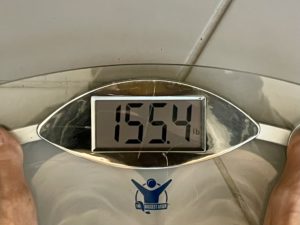The other day, as I whipped out the 8 bottles of supplements I routinely take every morning, I realized that: 1. This is some crazy shit that I take 8 different supplements every day, and 2. I should probably blog about them for anyone else who is interested in brain health and in potentially delaying or preventing cognitive decline.
First, a quick plug for an independent organization that a previous nutrition professor pointed out to me: ConsumerLab.com. They review various supplements and summarize the scientific literature about whether a supplement has been shown to actually help various conditions, and perhaps more importantly they also lab test different brands of supplements to check whether each brand actually has the promised amount of active substance, as well as checking for purity and levels of contaminants (such as mercury levels in fish oil supplements, or cadmium levels in dark chocolate). The provide this information, as well as price comparisons, to help you, the consumer, get the best quality supplement you can. They charge a membership fee for access to most of their content, which I have found well worth it (I personally buy 2-year access).
One of the main features of my Alzheimer’s Prevention effort is omega 3 fatty acid (specifically, DHA) consumption. The human brain is made mostly of fat, and about 30% of that fat is DHA (with about 90% of the omega 3 fatty acids in the brain being DHA). Many studies have shown that people with the lowest levels of DHA in their cerebral spinal fluid are at highest risk of dementia, and DHA supplementation has been shown to reduce “amyloid-β plaque production, aggregation, and toxicity, and promotes plaque clearance in individuals with moderate dementia and AD” (Alzheimer’s Disease). Interestingly, carriers of the APOE-4 allele of the APOE gene (like me) are at significantly higher risk of developing Alzheimer’s Disease, and seem to be less responsive to fish oil DHA supplements. Dr. Rhonda Patrick (an APOE-4 carrier herself) wrote a thought-provoking review paper on this topic, and notes that individuals carrying the APOE4 allele seem to benefit from actual fish and seafood consumption for improving brain neuropathology associated with Alzheimer’s Disease, but that fish oil supplements don’t have the same benefit. She postulates that it may have to do with the form that the DHA is in. Fish oil supplements generally purify the omega 3 fatty acids and then esterify them, and that form of DHA does not cross from the blood into the brain easily in people with APOE4 (whereas it may cross over in people who do not carry the APOE4 gene). She thinks that people with APOE4 may need to get their DHA in phospholipid form, which is present in actual fish and fish roe, as well as in krill oil.
For this reason, I switched over from my triglyceride-form DHA supplements by Nordic Naturals (which should be absorbed by the gut better than the cheaper ethyl ester form of most lower quality fish oil supplements, and may work just fine for people without the APOE4 gene) to krill oil (I actually take 4 servings, or 8 capsules, a day because the DHA content is so small) and a separate phospholipid omega 3 supplement. I take both of these supplements on a daily basis. But more importantly, I eat at least one and sometimes up to 4 servings of salmon every week in order to get the natural phospholipid form of DHA from actual fish. Salmon roe has an amazing amount of phospholipid form DHA if you like it, but I unfortunately can’t stand the extremely fishy taste of salmon roe. So regular salmon it is for me. Other fish high in DHA include mackerel, sardines, herring, and anchovies, if you’re into any of those! The MIND Diet (read my old blog post here for more info) recommends eating at least 3-5 ounces per week, whereas the 2020-2025 Dietary Guidelines for Americans recommends eating at least 8 ounces per week. I err on the high side and eat a minimum of 8 ounces of salmon per week, and sometimes more. And this 8 ounce serving of farmed salmon provides me with about 3300mg of DHA (vs. the 260mg I get from taking four servings of my krill oil!). One ounce of salmon roe contains about 370mg of DHA, which is about the same (ounce for ounce) as salmon meat, except that approximately approximately 40-70% the DHA in salmon roe is in the desirable phospholipid form, compared to the fish itself which has just 1-3% in phospholipid form. (This is why I still take the krill oil and the omega 3 phospholipid supplements even though I eat a decent amount of actual salmon: if only 1% of the salmon DHA is in phospholipid form, that would be just 33 mg in 8 ounces.)
…And for my weekly weigh-in, I am up a pound this week (and confess that I *still* have not given up sugar and flour — I ate Doritos and chocolate yesterday, for example):
Project 135 (resurrected) stats:
week 0 (Jan 1, 2022): 164.4 lbs
week 1: 162.2
week 2: 160.8
week 3: 159.2
week 4: 159.4
week 5: 156.4
week 6: 157.2
week 7 (after FMD): 153.4
week 8: 154.4
week 9: 155.4
Total weight loss: 9 lbs (5.5%)
See you next week! ❤️


2 Responses
You do now fish doesn’t contain DHA in phospholipid form? Only seafoods.
Hello, Maciej! Thanks for your comment. Fish is a type of seafood, and does contain DHA in phospholipid form, especially the fatty fish like salmon or mackerel (though fish eggs, or roe, has a significantly higher proportion than fish flesh).